Before you export to China, it is good for you to consider that China is a completely different market and has its own characteristics.
Understanding Characteristics of Chinese Market is the Key to Success
First of all, China is relatively local, so, you have to dig deep into the weeds to find the best prices and products that suit the needs, trends and habits of Chinese consumers.
You will also need to do market research to understand your market positioning among foreign and local companies, understand your competitors, their price ranges, etc.
Who is China's largest trading partner?
With its booming economy, China has developed a huge network of trading partners over the years. All trading partners are considered significant to the development of China’s economy, but with changes in national and international policies, the title of China’s largest partner is constantly changing.
Nonetheless, we can surely say that China’s largest trading partner at the moment is ASEAN(Association of Southeast Asian Nations).
What is the product category that the United States exports to China the most?
As of 2021, China is the third largest export market for the United States after Canada and Mexico. U.S. merchandise exports to China have grown substantially over the past two decades, but have declined since the trade war erupted in 2018.
Here is the value of exported goods from the United States to China in 2021 which was released in 2022, by commodity category(in billion U.S. dollars).
Only the top 25 categories are shown. Categories are based on 5-digit end-use commodity codes for goods exports and imports.
Why do Chinese people seldom reply to emails?
If you try to communicate with a Chinese company, partner or customer, choosing the right communication tool is an important part. This can be quite different compared to other countries as most Chinese people rarely use email but prefer WeChat in their personal and business lives (if you’ve tried email marketing campaigns in China, you’ll know what I’m talking about).
If you want to do business in China, then you’d better register a WeChat account. GMA can help you build your verified WeChat business account and help you grow your engaged follower base.
Networking in China: Building and maintaining a strong network is the key to success
One thing that is especially important in China is your network. In China, people see others as business partners. This is not surprising, but knowing the right people can greatly simplify the process of doing business in China.
However, not every business entering China has the “connections” (networks) to help them establish and succeed in China. This is where digitalization in China starts to play a crucial role. You may not have the right connections at the beginning, but by working to improve your online reputation, you will build a solid network while building a name for your brand in China.
Do I need a Chinese team?
Suppose you’re considering marketing in Chinese tier-1 cities like Beijing, Shanghai, Guangzhou, Hong Kong, etc. In that case, language may not be the biggest barrier, as these cities are very international, but localization efforts will be highly appreciated.
However, in smaller cities, if you want to work in Hong Kong, it is recommended that you work with locals or hire someone who can speak fluent Mandarin or Cantonese. Hiring a translator is especially important if you are just entering the Chinese market and exporting your goods, as this will help you start off with a good foundation and easily communicate with all your partners.
Export to China: Regulations You Should Know
In order to export your products to China, you need to understand and comply with Chinese laws and respect some important processes.
Is it easy to export to China?
In terms of infrastructure, there’s nothing to worry about. China is quite advanced in technology and infrastructure. As a hub of the world, China’s government has invested in several infrastructures, with more than 270 airports and 268 green data centres, etc.
Since China also has multiple international ports, you will be able to export goods in containers.
In terms of regulations, China is very strict with foreign companies, especially those selling food and beverages (understandable).
Overseas brands must know that the laws and regulations for imported goods in China are constantly changing; they protect not only personal property, public health and the environment, but also national security. If you want to export your products to mainland China, then you should comply with the standards issued by the Standardization Administration of China (SAC).
Distribution Models
(Example: large distributors like Carrefour)
Or through a specific dealer: In China, as in any specialized industry, you can find a specific dealer. These are professional dealers nationwide or in cities. They usually have an existing network of customers and offer them different types of services or products.
The classical distribution model can be tricky for newcomers, as purchasing agents often prefer to deal with suppliers already in the market. The reason is simple: products that are already popular in the country are easier to sell than products that are not known to the general public.
But as we mentioned before, don’t panic if you’re not in the market yet. There are solutions that can set you apart and get the attention of your Chinese dealers.
Online Distribution: E-Commerce
Selling through e-commerce platforms in China.
China has a booming e-commerce market. The internet users of China are one of the largest in the world, as many people use online platforms to shop. With 44% of total retail sales coming from China, China has the fastest-growing consumer group in the e-commerce market, well ahead of the UK and the US.
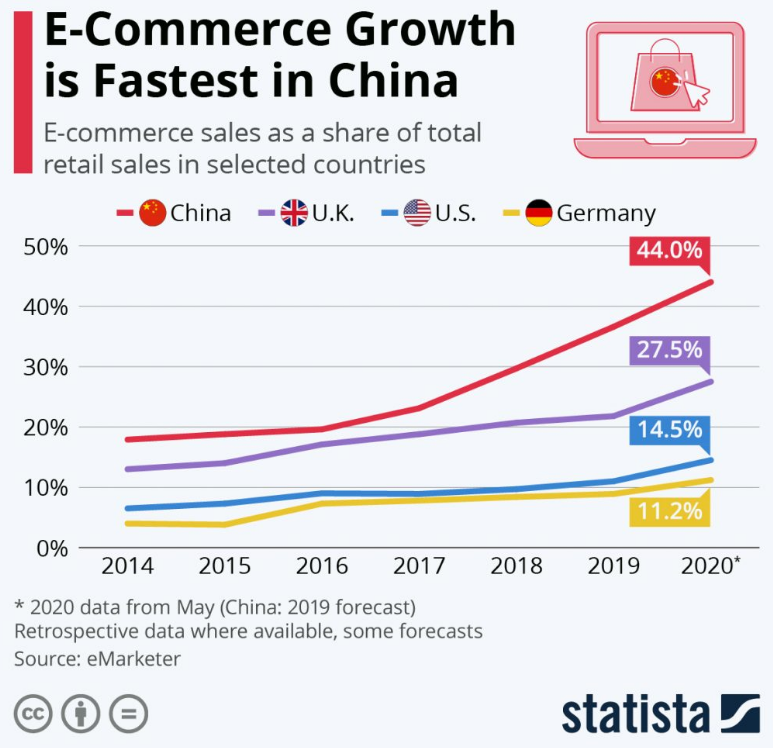
If China’s online shopping industry is surging, it’s not just e-commerce giants like Alibaba that are benefiting. Online shoppers in China spent more than $1 trillion in 2019, and that number is expected to grow exponentially as the Covid-19 outbreak intensifies digitalization in the country.
According to a recent study by Tencent Research Institute. Research refers that online shopping in China is expected to grow at an annual rate of 22% over the next five years.
This graph shows that there were already 782.41 million online shoppers in 2020. Digitization and the daily use of smartphones in China have greatly contributed to this trend, as consumers spend an average of 6 hours a day on their smartphones.
Furthermore, the development of e-commerce platforms is showing more importance in the wake of the Covid-19 pandemic. It is predicted that businesses can increase their sales by 20% by selling on e-commerce platforms. In 2019, one-third of China’s GDP came from the added value of e-commerce, and there will be more.
We can see that Taobao is the most popular e-commerce player in China, followed by Tmall, JD.com, AliExpress, Vipshop and Kaola.
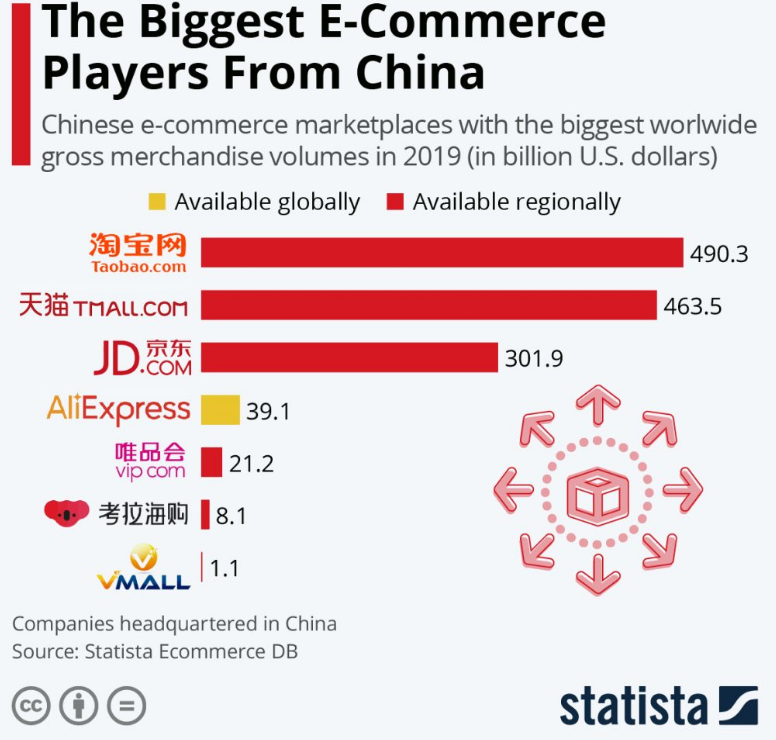
Each of these platforms is very useful for overseas companies, but they are also very selective due to the large quantities of businesses that want to sell their products online. In short, if you want to be successful on JD.com or Tmall, for example, you have to really work hard to brand your product domestically. Also, these platforms are very strict about the quality of their products, so you have to follow their rules and long application process. You can also decide to focus on other platforms, such as WeChat online mall or Kaola, etc.
Chinese consumers are eager to buy products online because online shopping is more convenient and easier than shopping in stores. While you don’t need a Chinese business license to sell on these platforms, we highly recommend that you work with an entity established in China that can handle legal matters, such as obtaining the necessary licenses. For example, Tmall Global pushes brands to work with TP, an Alibaba-certified third-party partner that handles everything from the registration process to customer and logistics service.
As the name suggests, CBEC(cross-border e-commerce) allows you to ship overseas products directly to China. Chinese consumers can purchase them on dedicated cross-border e-commerce platforms such as Tmall Global, JD.com, WeChat Online Mall, etc. Please feel free to contact us if you want to sell your products through cross-border e-commerce at [email protected].
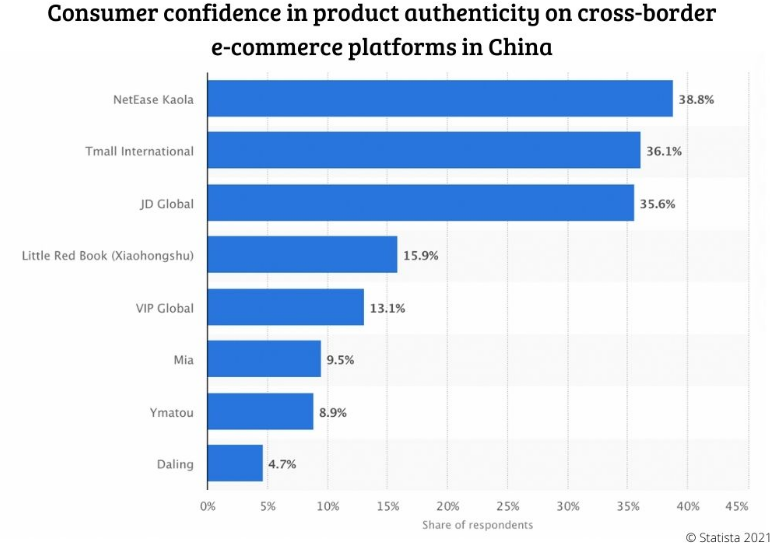
In fact, as can be seen from the chart above, Chinese consumers are quite confident shopping on cross-border e-commerce platforms.
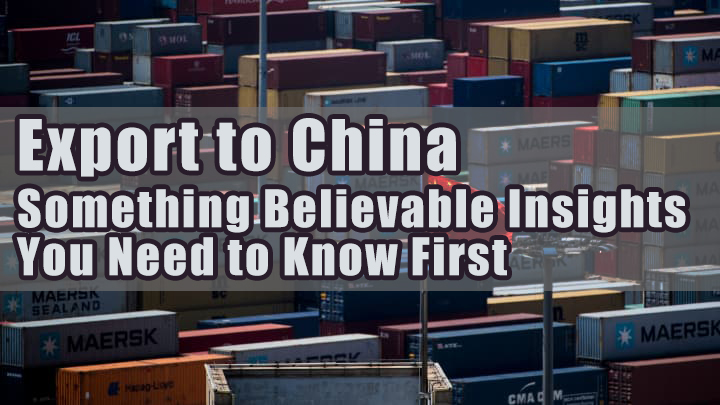
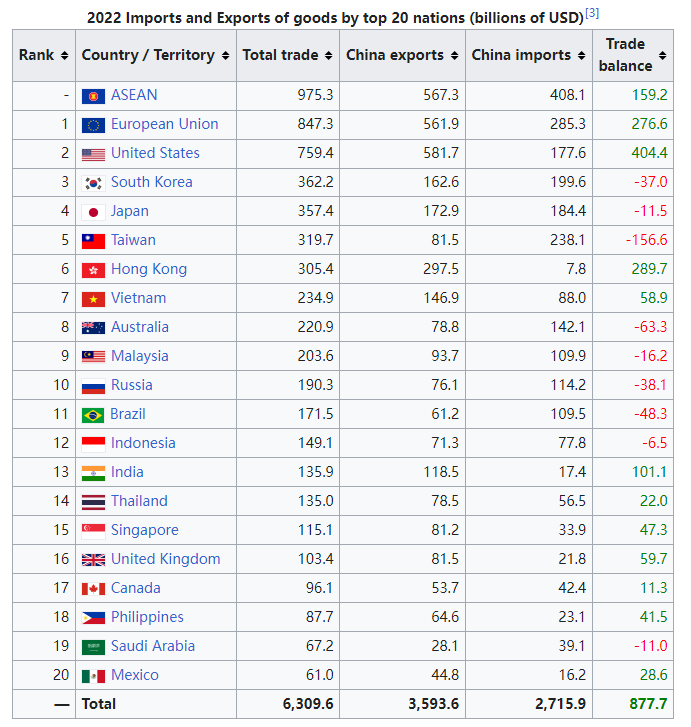
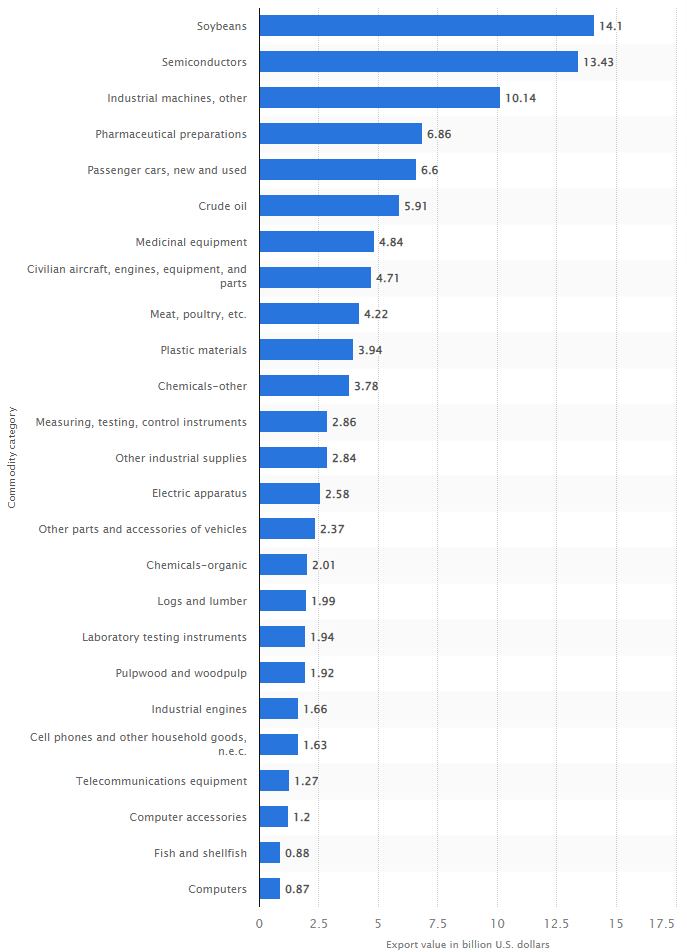
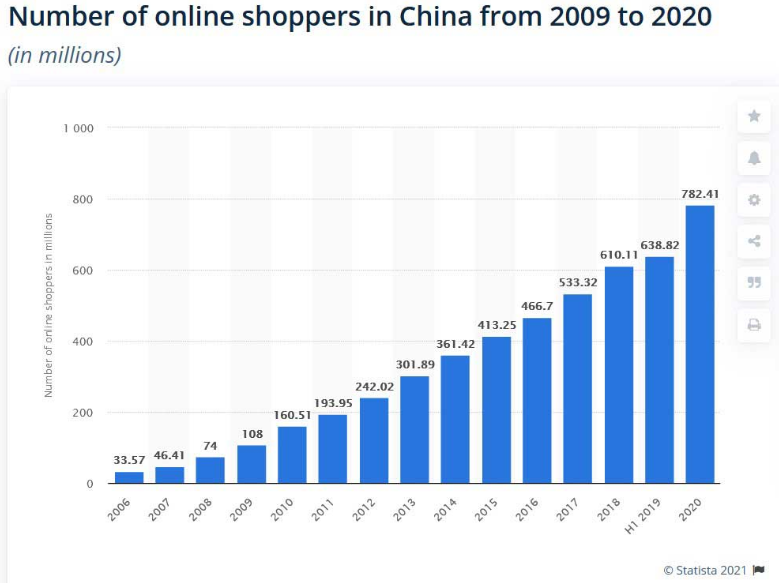
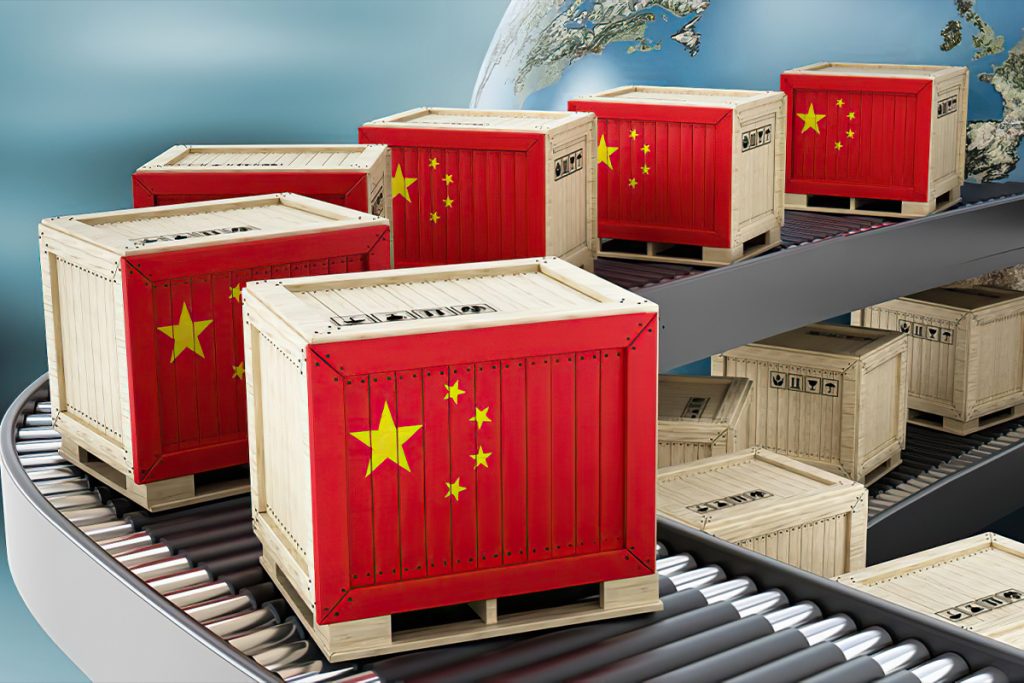
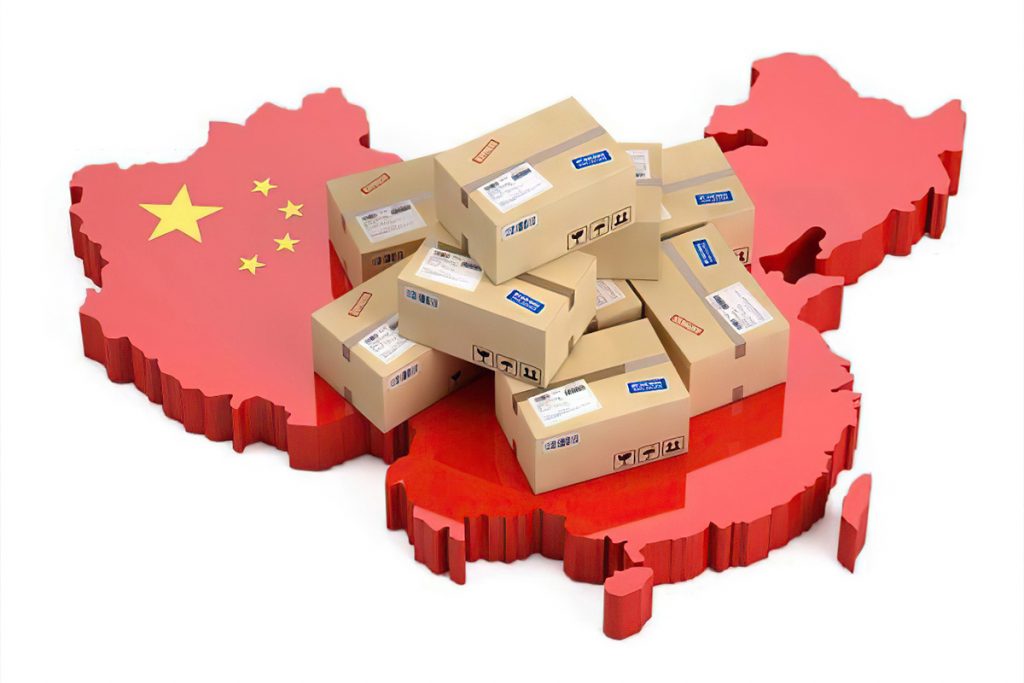
It contains fastidious material.|I think the admin of this website is actually working hard in favor of his site,
Thanks for sharing. I read many of your blog posts, cool, your blog is very good.